Homily: Annual Festival Mass at St Mary's Cathedral
Today we welcomed His Excellency Archbishop Miguel Maury Buendía, Apostolic Nuncio for Great Britain, to the Annual Festival Mass at St Mary's Cathedral in Edinburgh.
He was joined by Archbishop Leo Cushley and dignitaries from across the city.
Homily
Homily of Archbishop Leo Cushley of St Andrews & Edinburgh. Festival Mass, St Mary’s Metropolitan Cathedral, Edinburgh , Sunday 13 August 2023
My dear friends,
A warm welcome to St Mary’s Metropolitan Cathedral as the 76th Edinburgh International Festival takes place in our city.

It is an honour to have you among us, and to salute our friends in the family of nations whom you represent and serve in Scotland.
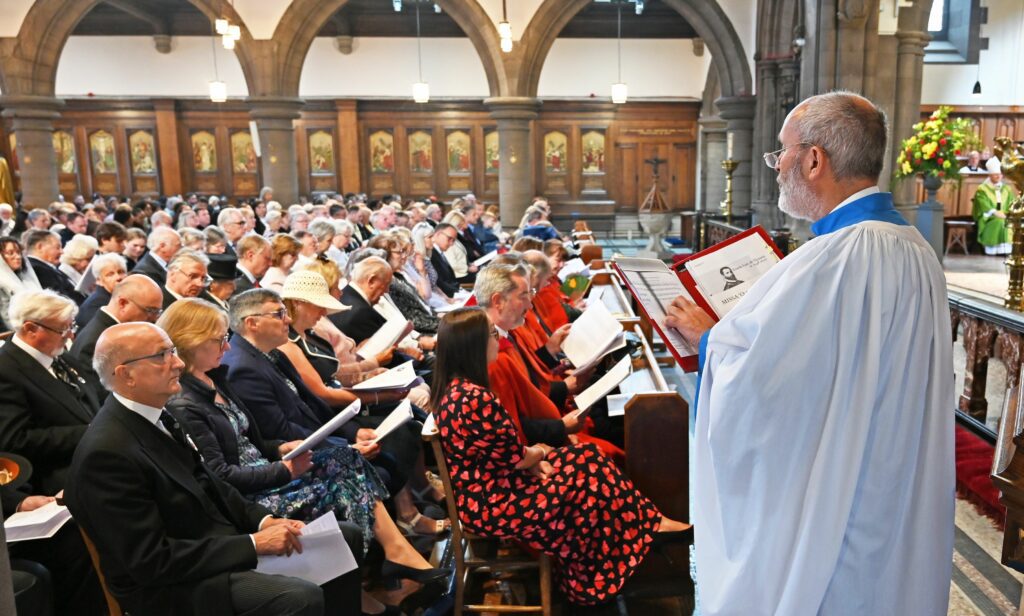
I also have the honour to welcome our Episcopalian friends, Bishop John Armes of Edinburgh, and Bishop Kevin Pearson of Glasgow & Galloway. You are both most welcome here.
In particular, we have the honour of welcoming today His Excellency the Apostolic Nuncio to Great Britain, my friend and colleague Archbishop Miguel Maury Buendía (below left).

These days are among the highlights of the civic year here in Edinburgh.
As the Lord Provost (below) and Councillors present well know, running a city is not just about fixing the roads and emptying the bins, although we all like both things done timeously, and appreciate everything you do in those and many other directions.
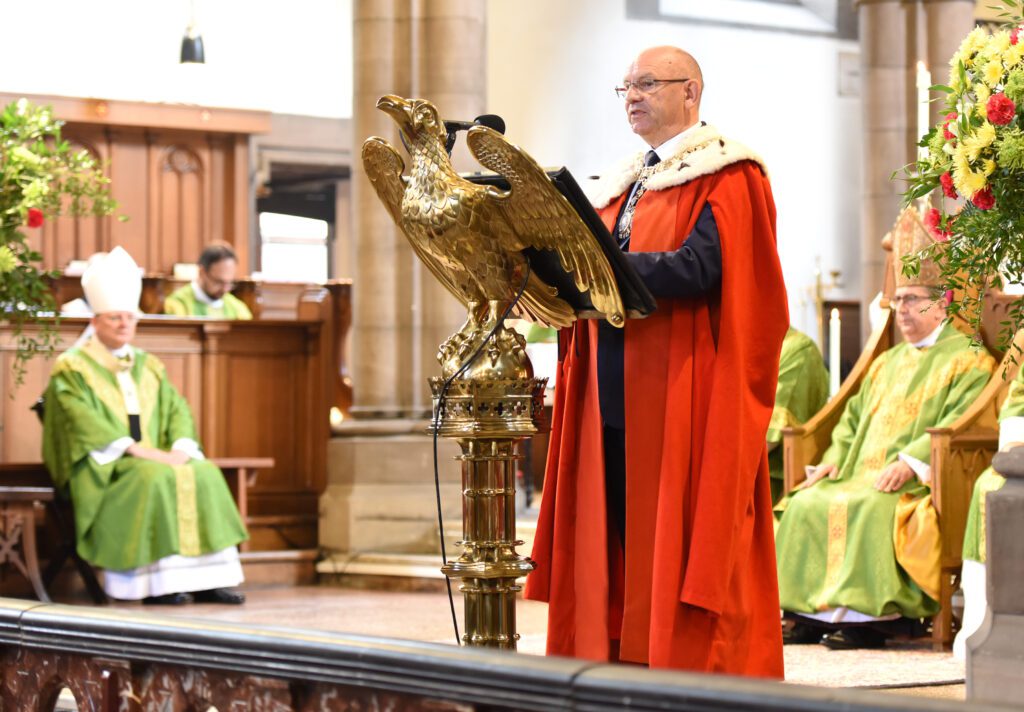
But sometimes, we need to lift our eyes from the day-to-day, the work at hand, and as it says in Exodus, “rise up and play”. And this is something that the City of Edinburgh has been doing with evident gusto since the Edinburgh International Festival began in 1947.
As we have been reminded again these day by the release of the movie Oppenheimer, at the end of the second World War, the world was still a very precarious place, where the peace of 1945 was starting to turn into a darker struggle that became the Cold War.
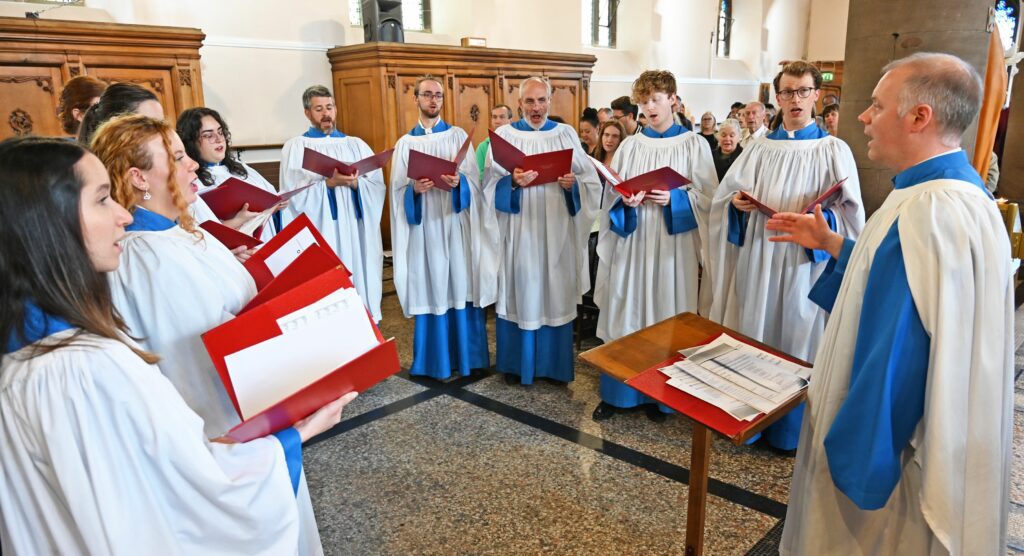
Most of us here remember personally how this played out in the second half of the last century, and how, at length, the Cold War drew to a close, and the beginnings of what we all hopefully named a “peace dividend” started to emerge.
I remember, less than 20 years ago, amid the optimism of globalisation, seeing signs in the United Nations in New York declaring that it would take $50bn to fix world poverty.

Yet peace and prosperity remain elusive, war is no farther away, and while the stats tell us that developing countries and their people have got richer in the last thirty years, it still doesn’t feel like our generation has made things much better.
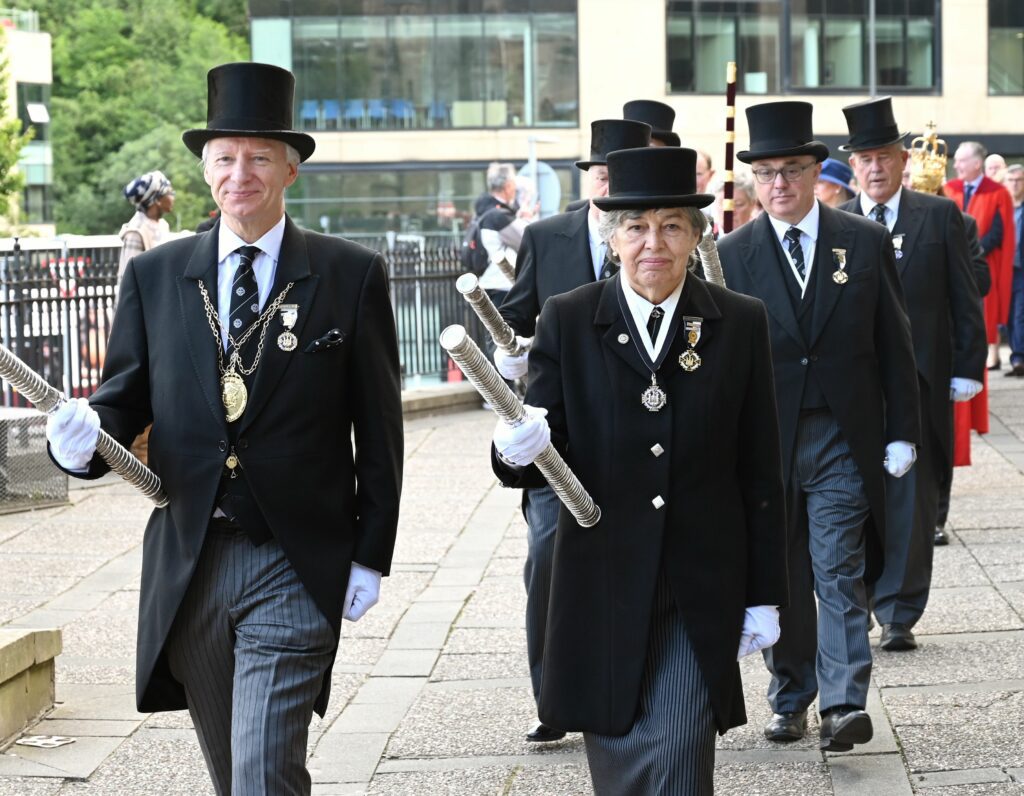
To this rather mixed picture, we must add that none of us thought to see a land war in Europe in our lifetime. Europe, and the concert of nations in general, is still in search of peace.
I believe one of the intentions of Rudolph Bing, founder of the Edinburgh International Festival, was to find an antidote to war, to selfishness, to the institutionalized, official, legalised disregard for human dignity and worth.
In the Edinburgh Festival he and its co-founders wished to remind us of the better angels of our nature, and to draw our attention to something better, purer, higher.
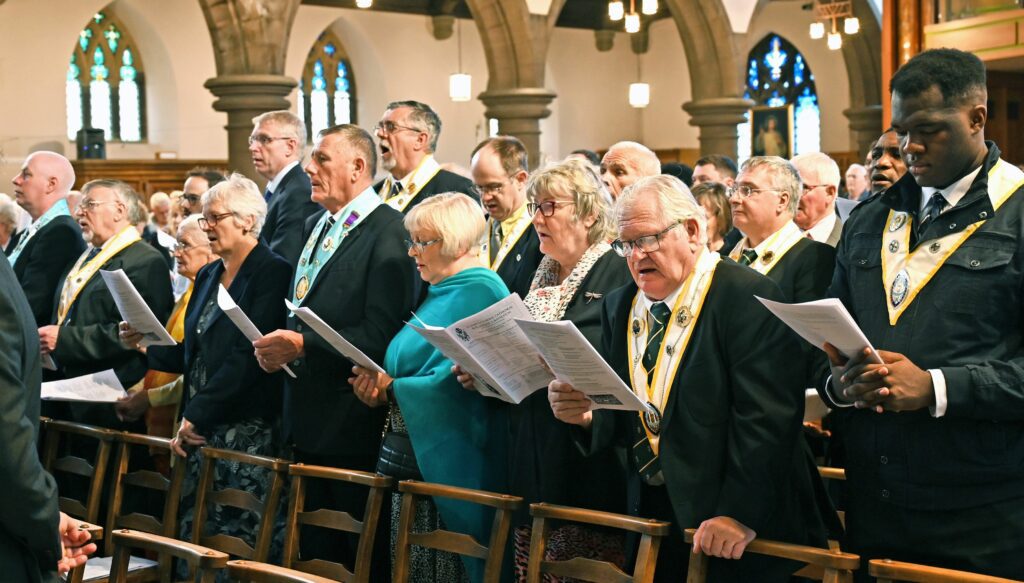
As I have had occasion to say before, the Edinburgh International Festival is, at its best, a festival of the human spirit. At its best, it is a celebration of beauty, and beauty draws us out of ourselves and inspires us.
We can’t always articulate it, but we know it when we see it. Beauty in something outside ourselves helps us see that it’s not always about us; in fact, it’s a better, healthier place to be when we’re drawn out of ourselves, when we are thinking about the other, when we’re looking out for each other.
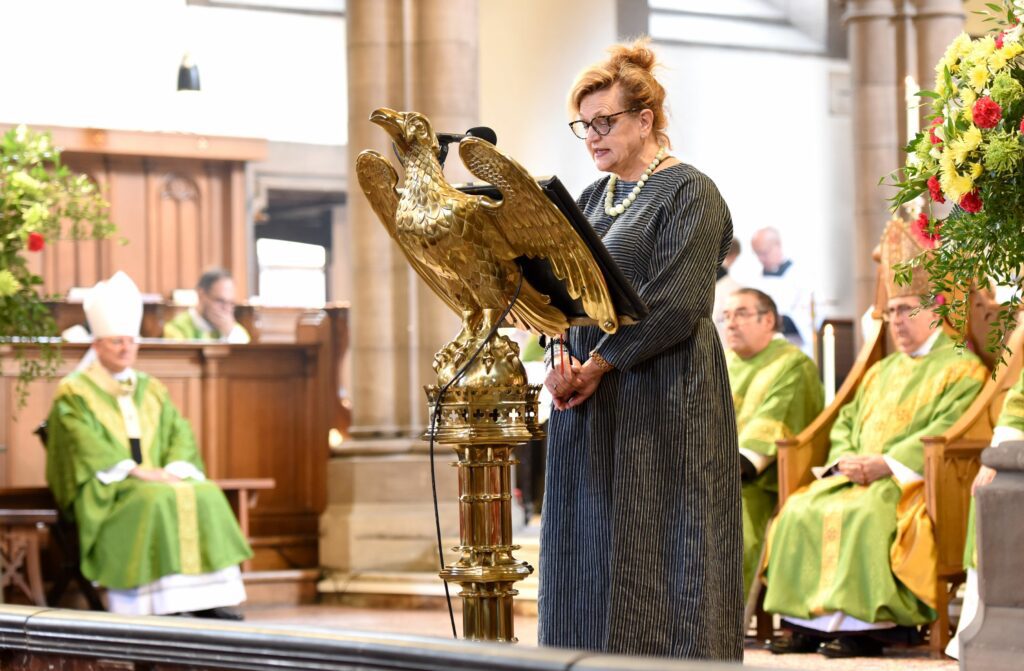
And the dignity and worth of every human being, no matter or what they may be, is at the solemn, essential heart of the Edinburgh International Festival.
Fun is fun, but there is a bigger picture, a meta-narrative that we mustn’t lose sight of, as we enjoy the arts and the music and the theatre around us.
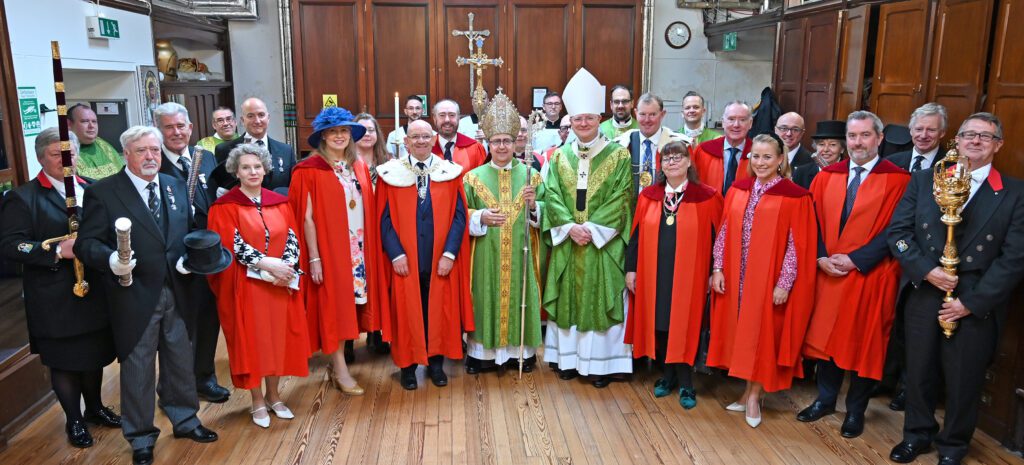
Bing, a Jewish German refugee who fled to this country to escape the Nazis, founded the Festival with the city authorities in the wake of the atrocities of the Second World War, to put the human person and everything that is noble in our spirit, back at the heart of things.
The Festival’s deeper significance is that it’s about pushing back the extremists and the nihilists; it’s about putting the human person, and the beauty that we can achieve, back at the centre of our attention, and allowing a little grace build on our modest and broken nature.
It’s about taking back our stolen dignity and worth. It’s about denying the field to the ideologues, the fatalists, the extremists, the people who don’t believe in humanity.
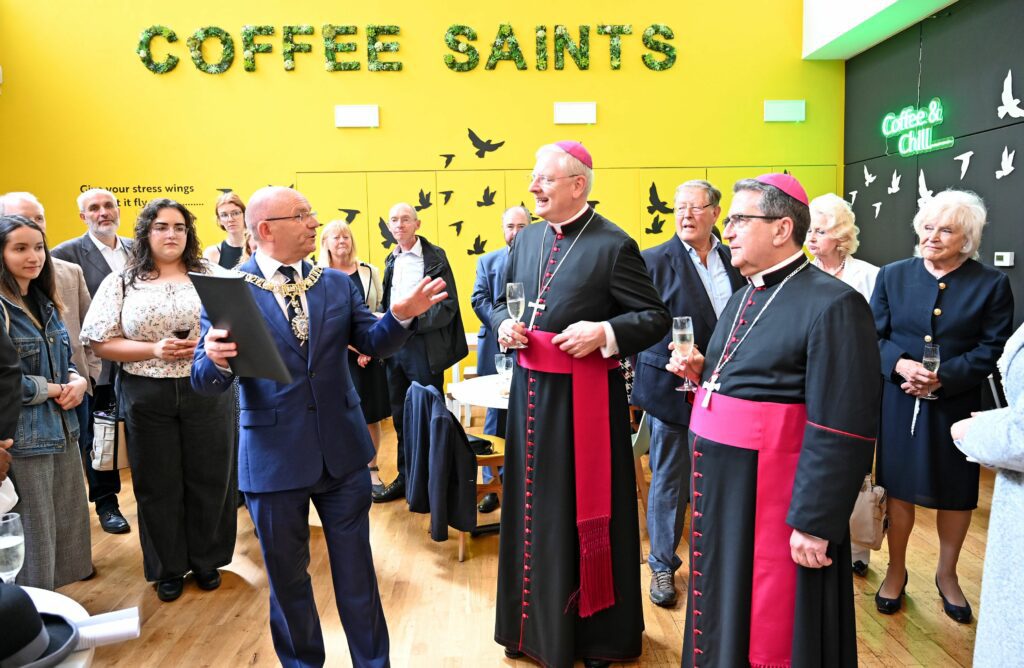
And the need for the Festival’s positive, gentle energy should be clear, as we look at what is happening again in the family of nations, especially in Ukraine, but elsewhere too.
As we give thanks for the many blessings that have come to the city every year through these celebrations, we take a moment to recall that that the Edinburgh International Festival is at its best when it is faithful to its founder's vision, and when it promotes and respects the dignity and worth of the human person; it is successful, not only when there are millions of happy visitors, but also when we let it be true to itself: a Festival of all that is best in our broken, but blessed and grace-filled human spirit.
All images: Paul McSherry.